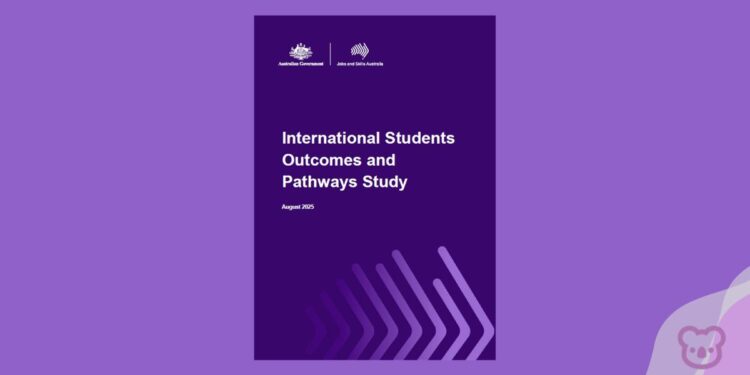A report released yesterday by Jobs and Skills Australia (JSA) reveals that international students are central to the nation’s future workforce, but warns that visa, education and employment systems must be better aligned to unlock their full potential.
The International Students Pathways and Outcomes Study – commissioned by the Australian Government in late 2023 – tracks the journeys of international student cohorts from 2010 to 2023. It highlights how international graduates contribute to Australia’s economy and identifies barriers limiting their transition into skilled employment.
Key Findings
- Pathways to permanency remain narrow: Permanent residency opportunities are available to only a fraction of graduates, funnelling many into repeated temporary visas.
- VET graduates outperform expectations: International VET students are more likely than higher education graduates to work in fields aligned with their qualifications, particularly in areas such as hospitality and construction.
- Mismatch between study and employment: Many higher education graduates end up in jobs unrelated to their qualifications, often below their skill level.
- System pressures shape choices: Visa settings and the migration points test incentivise students to choose courses based on residency prospects rather than personal interest or labour market demand.
- Skills shortages remain unmet: Despite international graduates’ numbers, only a narrow band of occupations – such as nursing and cookery – provide viable pathways into the workforce.
Professor Barney Glover AO, Commissioner of JSA, said the study “provides new insights into how international education, migration and skills systems can better connect to support students and meet Australia’s critical workforce needs.”
Phil Honeywood, CEO of the International Education Association of Australia said “The Government has very big expectations that this Report will persuade education providers to drink the koolaid of skills focussed course design. A key challenge will be to match student demand for traditional courses with Australia’s skill needs.
“Given the Report’s data shows the vast majority of our overseas students still return home, then we overlook our neighbouring countries different skill needs at our recruitment peril.
“The emphasis on VET courses is also curious at a time when Government is making it ever more difficult to obtain a student visa based on enrolment in VET programs,” he said.
Recommendations
The report makes 11 recommendations across education, migration and labour market policy:
- Develop a shared set of objectives for Australia’s international education sector, recognising its economic contribution and role in building the skilled workforce.
- Publish sector- and provider-level performance data including graduate labour market outcomes, accessible to policymakers, regulators, students and employers.
- Review study-to-work visa pathways for international VET graduates to ensure alignment with persistent national skills shortages.
- Address barriers to employment transitions by improving English language proficiency support, cultural preparation, and recognition of international qualifications.
- Expand work-integrated learning opportunities, especially structured placements, to strengthen workforce readiness.
- Monitor the impact of new integrity measures (from 2024 onwards) with a focus on economic and employment outcomes.
- Conduct further qualitative research with international students and graduates to better understand motivations and decision-making in study and work choices.
- Enhance employer engagement and incentives to recruit international graduates into areas of skill need.
- Strengthen VET quality assurance to maintain employer and community confidence in qualifications.
- Develop a standardised national measure of when and whether international students return home post-study to improve visibility of migration and workforce outcomes.
- Reform the migration points test to better identify international graduates who will make long-term contributions to Australia’s workforce and reduce reliance on course “funnelling.”
The study emphasises that international students are not just fee-payers but potential future contributors to Australia’s productivity and economic growth. Without coordinated reforms across visas, education, and employment systems, JSA warns that Australia risks missing the full benefits of this vital cohort.
The full report can be downloaded here.

















